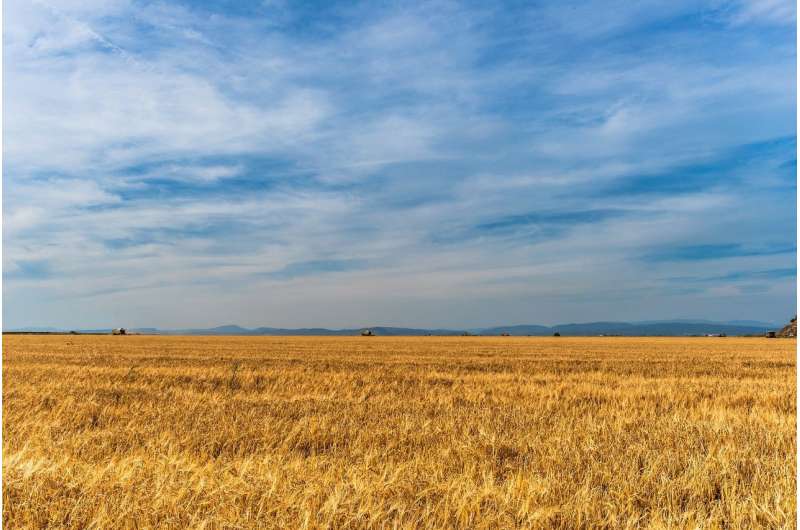Farmers' climate denial begins to wane as reality bites

Australia has been as the "front line of the battle for climate change adaptation", and our farmers are the ones who have to lead the charge. Farmers will have to cope, among other pressures, with .
Yet, puzzlingly enough to many commentators, climate denial has been widespread among farmers and in the , which purports to represent their interests.
Back in 2008, accepted the science of climate change. Our 2010-11 survey of 946 irrigators in the southern Murray-Darling Basin () found similar results: 32 percent accepted that climate change posed a risk to their region; half disagreed; and 18 percent did not know.
These numbers have consistently trailed behind the wider public, a clear majority of whom have . More Australians in 2018 than at almost any time, with 76 percent accepting climate change is occurring, 11 percent not believing in it and 13 percent being unsure.
Yet there are signs we may be on the brink of a wholesale shift in farmers' attitudes towards climate change. For example, we have seen the creation of , , the first ever in Canberra, and by farmers on the need for climate action. Since 2016 the National Farmers Federation has for action to reduce greenhouse emissions.
Our latest preliminary research results have also revealed evidence of this change. We surveyed 1,000 irrigators in 2015-16 in the southern Murray-Darling Basin, and found attitudes have shifted significantly since the 2010 survey.
Now, 43 percent of farmers accept climate change poses a risk to their region, compared with just 32 percent five years earlier. Those not accepting correspondingly fell to 36 percent, while the percentage who did not know slightly increased to 21 percent.
Why would farmers deny the science?
There are many factors that , with gender, race, education and age all playing a part. While this partly explains the attitudes that persist among farmers (who tend to be predominantly male, older, Caucasian, and have less formal education), it is not the full story.
The very fact that farmers are on the front line of climate change also drives their climate change denial. For a farmer, accepting the science means facing up to the prospect of a harsher, more uncertain future.
Yet as these changes move from future prospect to current reality, they can also have a galvanising effect. Our survey results suggest farmers who have seen their farm's productivity decrease over time are more likely to accept the science of climate change.
Many farmers who have turned to talk about the change of mindset they went through as they realised they could no longer manage a drying landscape without major changes to their farming practices.
In addition, we have found another characteristic that is associated with climate change denial is whether farmers have identified a for their farm. Many farmers desire to turn their farm over to the next generation, hopefully in a better state than how they received the farm. This is where the psychological aspect of increased future uncertainty plays an – farmers don't want to believe their children will face a worse future on the farm.
We all want our children to have better lives than our own, and for farmers in particular, accepting climate change makes that very challenging. But it can also prompt stronger advocacy for doing something about it before it's too late.
What can we do?
Whether farmers do or do not accept climate change, they all have to deal with the uncertainty of weather – and indeed they have been doing so for a very long time. The question is, can we help them to do it better? Given the term "climate change" can be polarising, explicit climate information campaigns will not necessarily deliver the desired results.
What farmers need are policies to help them manage risk and improve their decision-making. This can be done by focusing on how adaptation to weather variability can increase profitability and strengthen the farm's long-term viability.
Farming policy should be more strategic and forward-thinking; subsidies should be removed for unsustainable practices; and farmers should be rewarded for good land management – both before and during droughts. The quest remains to minimise the pain suffered by all in times of drought.
Provided by The Conversation
This article is republished from under a Creative Commons license. Read the .![]()


















